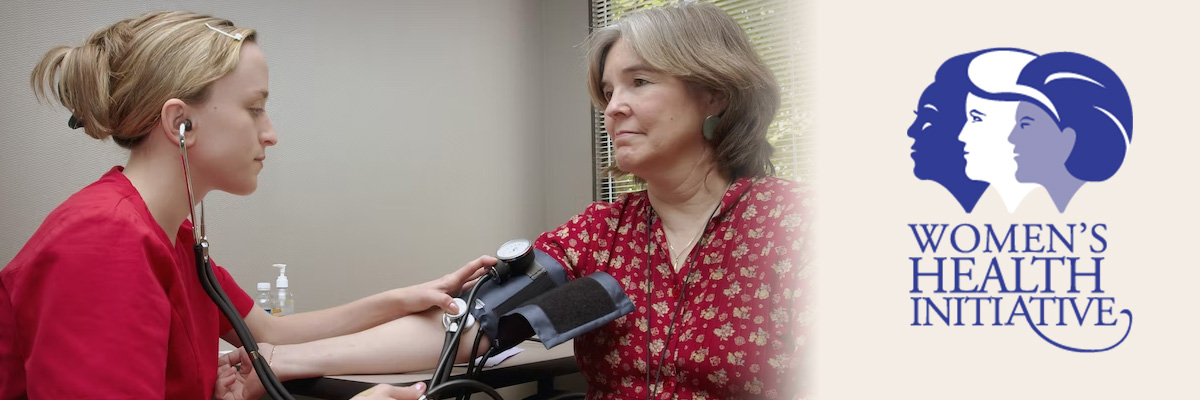Women’s Health Researchers Respond to New York Times Article on Menopause

Researchers from the college who have engaged in the Women’s Health Initiative recently responded to a New York Times article about menopause with a letter that shares key insights into the science on hormonal treatment for chronic disease risk: hormone therapy does not lower heart disease risk in women after menopause and should not be prescribed for postmenopausal cardiovascular prevention.
In February when the New York Times published an article about menopause, Women Have Been Misled About Menopause, researchers at the University of Arizona’s Mel and Enid Zuckerman College of Public Health (MEZCOPH) realized that the article did not accurately state the seminal findings of the Women’s Health Initiative (WHI) hormone research trials. While the NY Times article set out to discuss hormone therapy for menopausal symptoms, the WHI trial was not designed to test the management of menopausal symptoms. Rather, the WHI hormone trial was designed to see if hormone therapy reduced heart disease after menopause, a myth commonly accepted at the time when the study was launched. Contrary to expectations, WHI found that hormone therapy increased heart disease risk and these findings changed the face of hormone use, saving thousands of lives annually.
In response to the NY Times article, the WHI Steering Committee, guided by committee chair Dr. Cynthia Thomson, a MEZCOPH professor and the Director of the Zuckerman Family Center for Prevention and Health Promotion, wrote a letter to the newspaper in order to address the inaccuracies related to the WHI research.
An abridged version of the WHI letter was published in the Sunday, February 26 print edition of the New York Times, but is not available in the online edition. The full unedited letter can be read on the Women’s Health Initiative website. The WHI letter aimed to provide key supplemental information to enhance the NY Times article:
- Orient the reader to the context in which the WHI trial was launched in the early 1990s – the need to understand longer-term effects on chronic disease – not treatment of menopausal symptoms, which was already established.
- Emphasize the importance of distinguishing types of hormone treatment (combined hormones vs. estrogen alone) when weighing risks and benefits.
- Confirm the reasonableness of perimenopausal women considering hormone use to relieve moderate to severe symptoms, in consultation with a medical provider.
“I’m pleased that the Times published our letter, and glad to see public discussion around menopause, it is such an important topic in women’s health, especially as our population ages,” says Dr. Thomson, “we have learned so much through the Women’s Health Initiative and the knowledge generated by the research has made a real difference in women’s lives.”
A core insight, quoted here directly from the WHI letter, illuminates the importance and success of the WHI research:
The WHI menopausal hormone therapy trials were rigorously designed and conducted to test the benefits and risks of specific hormonal therapies for chronic diseases. They definitively established that menopausal hormone therapy should not be used to prevent heart disease, stroke, and other chronic diseases, an increasingly common practice at the time. The resulting worldwide decrease in their use in older women, often many years after menopause, undoubtedly has saved millions of lives and billions of U.S. health care dollars.
In addition to Cynthia Thomson, PhD, RD, MEZCOPH professors Zhao Chen, PhD, MPH, and Jennifer Bea, PhD, have engaged in WHI research for over three decades, expanding our knowledge of women’s health. Over 5000 post-menopausal women across Arizona have participated in the broader WHI research and over 50,000 women in the original 163,000 women enrolled nationally remain alive and continue to participate to this day. Over the years, Drs. Thomson, Chen, and Bea have co-authored nearly 100 WHI publications to advance our knowledge of women’s health.
Congratulations to Dr. Thomson and the WHI researchers on the publication of this letter and the significant contribution to women’s health provided by the WHI data. Dr. Thomson is one of several faculty in MEZCOPH who are dedicated to research on women’s health and healthy aging. Research studies related to women's health help the public and healthcare providers stay informed about the efficacy of the health interventions and treatments that are currently available in the field.
Learn more about the Women’s Health Initiative at www.whi.org, and contact Dr. Thomson at cthomson@arizona.edu for more information.

